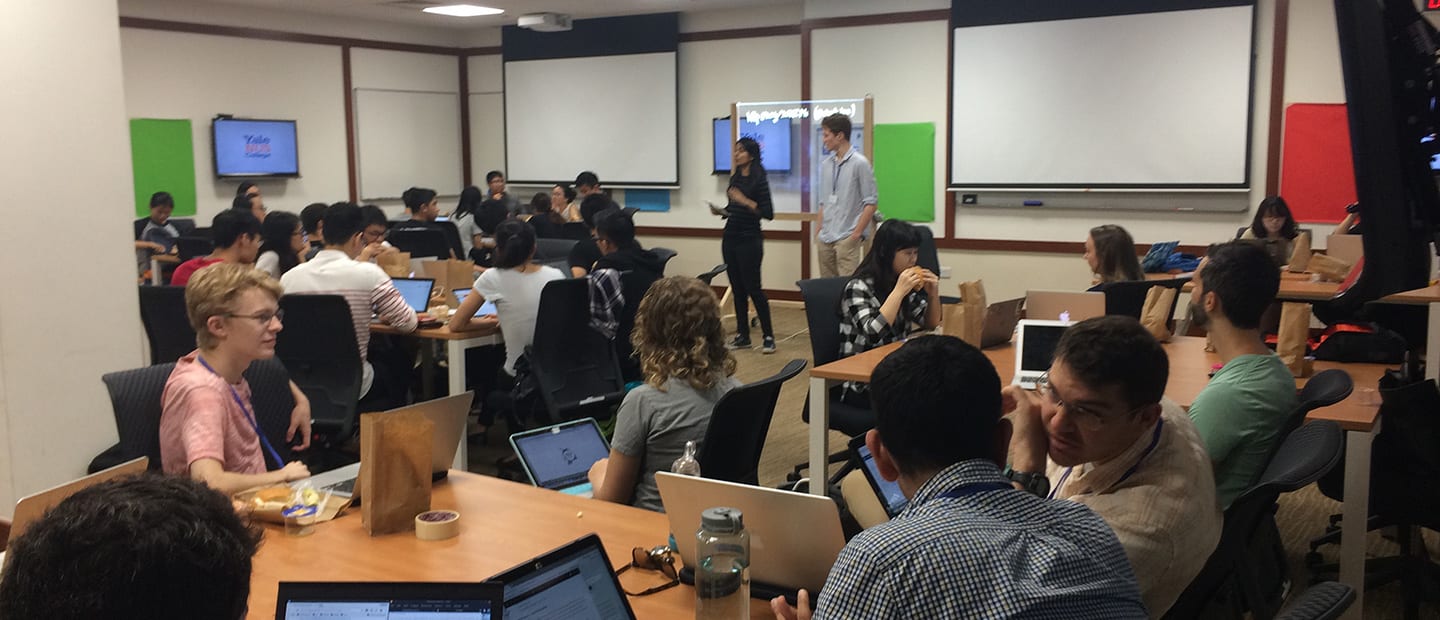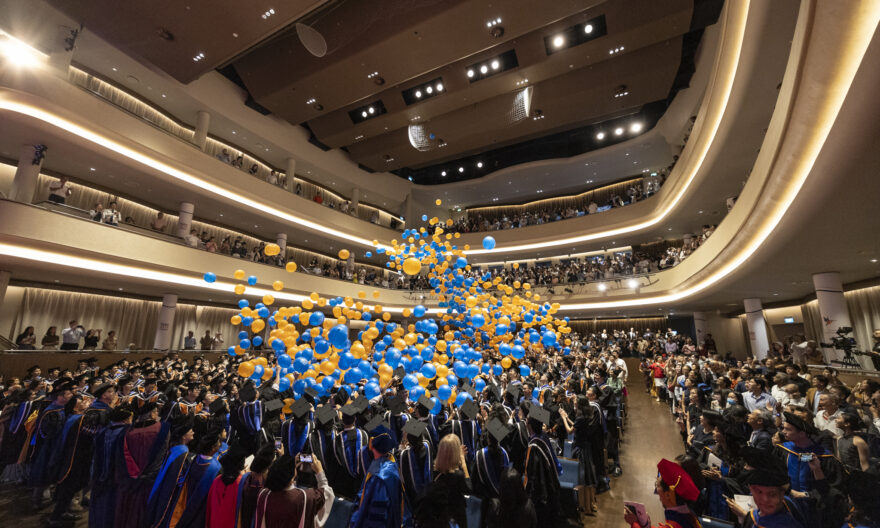Yale-NUS students hold first ‘Data 1.0’ hackathon on campus

On 18 March 2017, more than 50 participants from Yale-NUS took part in the first student led hackathon held at Yale-NUS College. Swarnima Sircar and Ross Rauber (both from the Class of 2019) were the key drivers of this event, which was aimed to improve data literacy and create a platform where students could develop visualisations and tools in a collaborative, empowering environment on an equal level. They were assisted by Chandler Beyer, Isabel Fang, and Michael Smith (all from the class of 2020).
Most hackathons are tailored towards experts in their relevant fields and organised on a large scale. To enable beginners or those who had a keen interest in working with data, the students decided to organise a student hackathon at the College.
“Many students, including myself, are interested in data science but do not know where to start. We wanted to provide an outlet for people to learn about one of the fastest growing and most exciting technical fields. To do that, Data 1.0 was designed for beginners and emphasized growth and learning above other outcomes. We also wanted to keep it small to make sure that our participants could get as much attention from our facilitators as they needed,” shared Swarnima. Ross added, “We thought that it was worth a shot as it is very rare to have a hackathon for novices in Singapore.”
In the days before the event, introductory workshops were held for participants to practise their skills on datasets using a statistical computing and graphics software called ‘R’. They also practised on other data visualisation tools called ‘Tableau’ and ‘CartoDB’. Supervising the workshops were student researchers and research associates from the Yale Data-Driven Environmental Solutions Group (Data-Driven Yale), an interdisciplinary and international group of researchers, scientists, programmers and visual designers based at Yale University’s School of Forestry and Environmental Studies and Yale-NUS College.
“The team from Data-Driven Yale had been invited by Assistant Professor Angel Hsu to come to the College and assist in her research. Their time and expertise was extremely valuable in providing our participants with some of the skills necessary to work with the datasets during the hackathon,” Swarnima said.

On the day itself, participants formed teams and worked on different datasets. Thereafter, they were tasked to use these datasets to carry out various assignments under a stipulated timeframe. They investigated various topics that ranged from the implications of college major choices to the kinds of damage caused by different forms of natural disasters. Apart from the Data Driven Yale team headed by Dr Angel Hsu from the Division of Social Sciences, two engineers from Google Asia Pacific, Ms Florbela Lei and Mr Mohit Kanwal lent their assistance. Mr Clayton Miller, an engineer who runs a data analysis tutorial website called Data Driven Buildings, helped in providing datasets to the participants.
After assessing and packaging the data, they then presented their findings to an interesting panel of judges that consisted of student organisers Swarnima and Ross; Datascience.sg co-founder Mr Koo Ping Shung; Associate Professor Alex Cook from the Saw Swee Hock School of Public Health and his 9-year old son Uri. “We deliberately asked Dr Cook’s son to be a judge to ensure that each team would have presentations that even a child could understand! It also drove home the point that data visualisation should be accessible to all of ages,” Swarnima said.
The presentations proved to be both entertaining and creative, which caused the judges to have a hard time deliberating on the winning entries.In the end, one of the teams, who called themselves “Jiak Peng Liao”, a colloquial phrase meaning ‘Time to eat!’, won the best presentation award for devising the fastest route to all of Singapore’s 137 hawker centres. Using the skills learnt in the introductory workshops, they discussed various methods in which hawker centre density and cuisine varied across neighbourhoods with different incomes and demographics.
Looking at the vibrant discussions surrounding the presentations, it was clear that the hackathon was a success. Ross and Swarnima were delighted with the feedback from the participants and hope that they can continue to foster a local community with a passion for data analysis and coding so that richer discussions can continue to take place.





